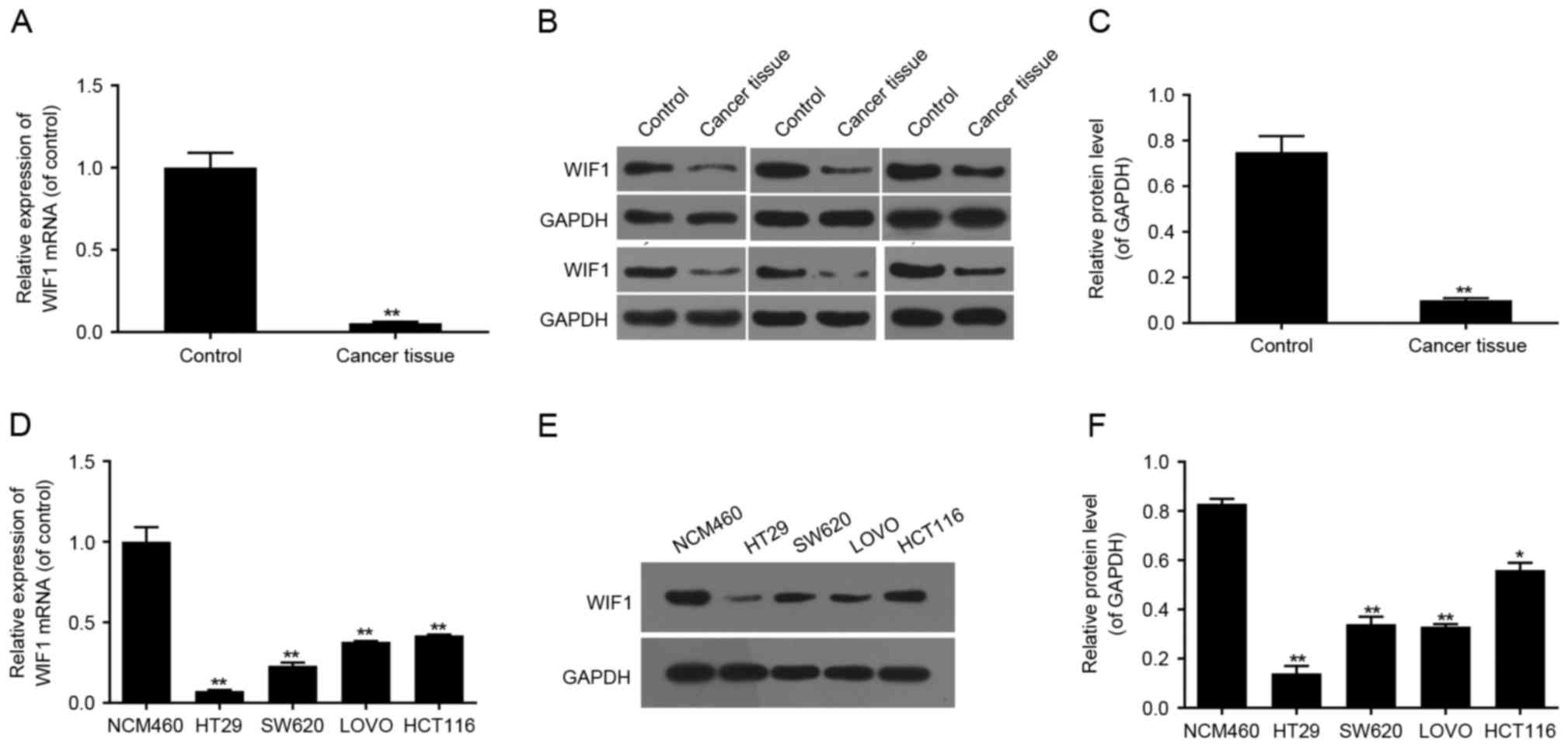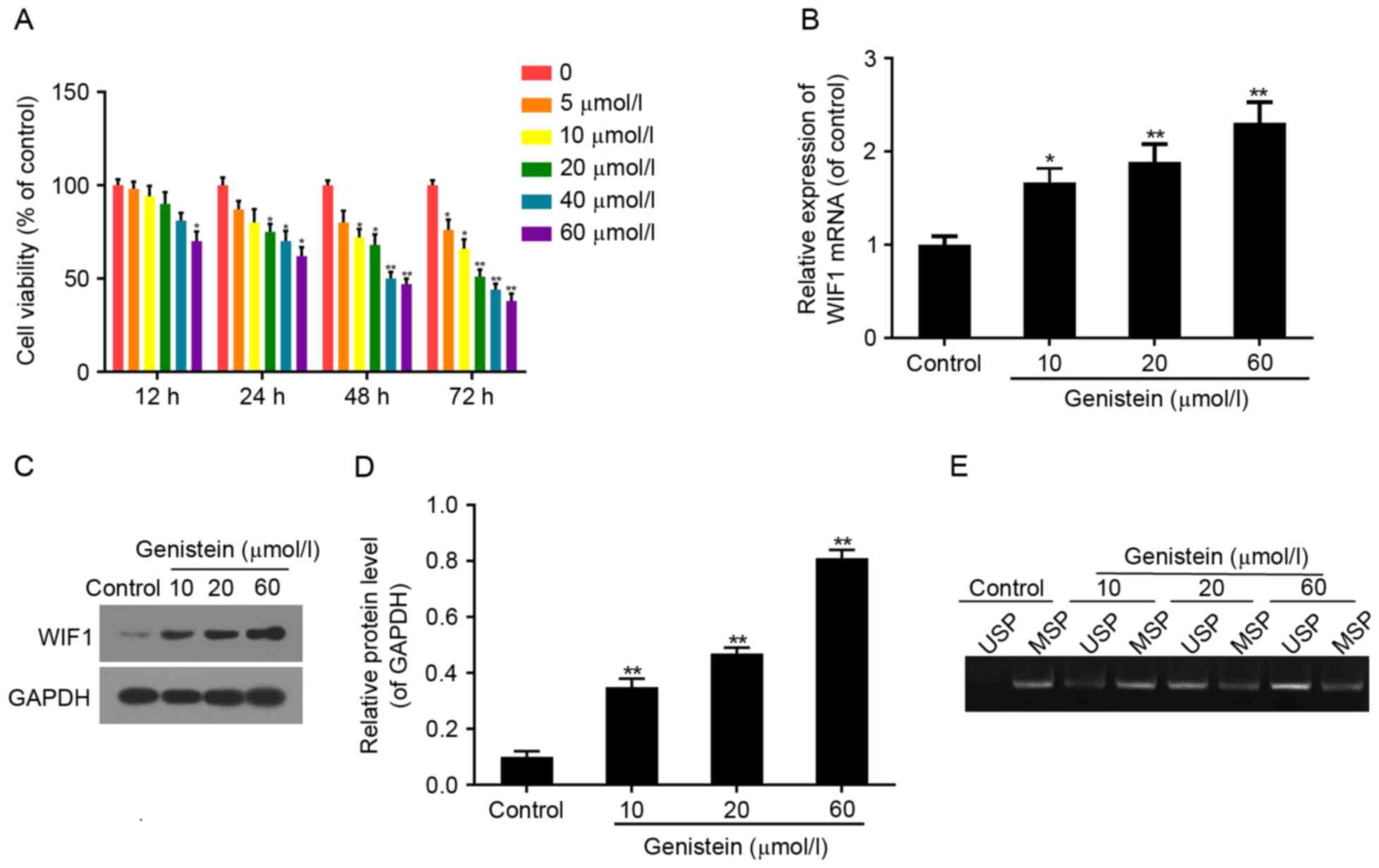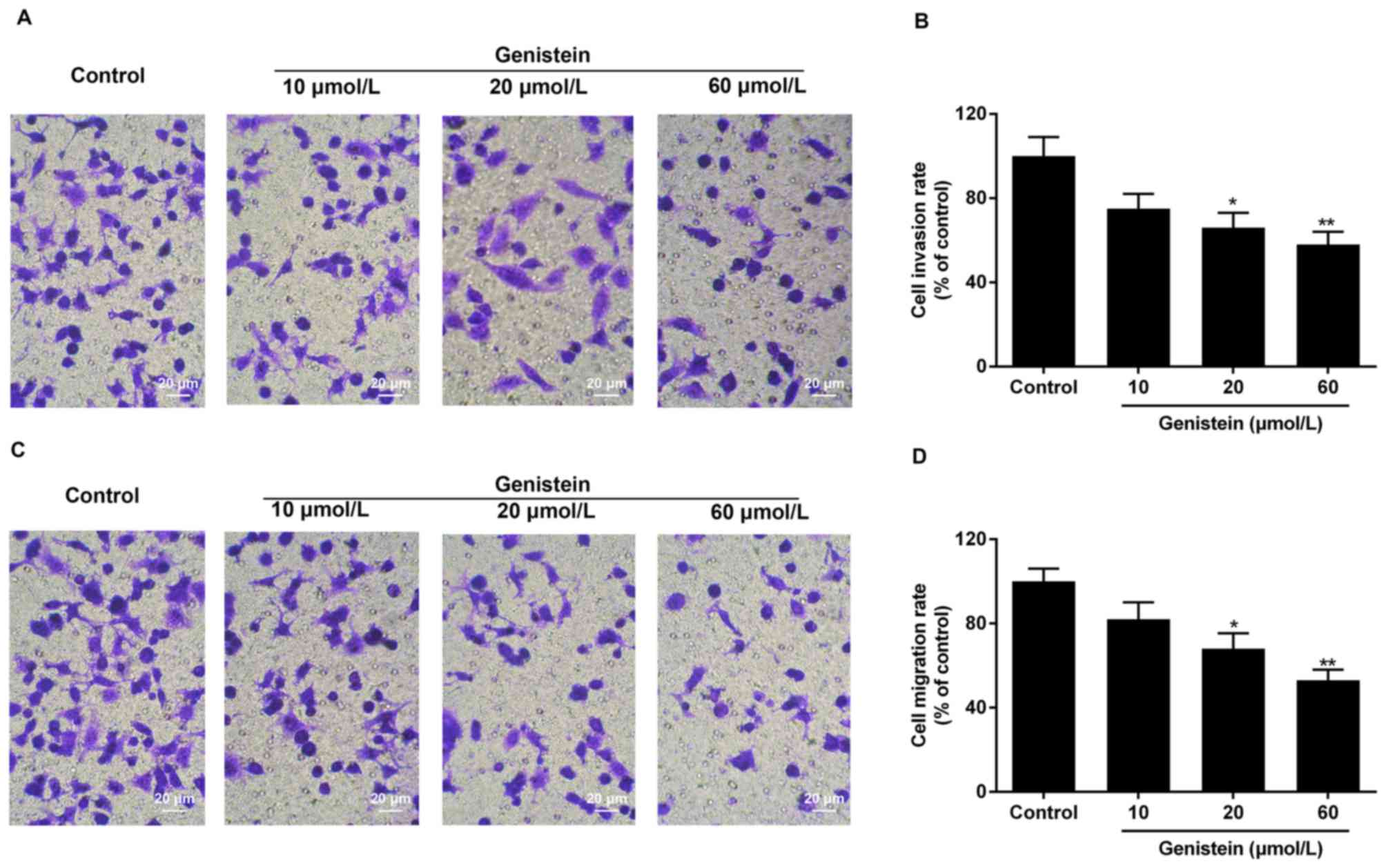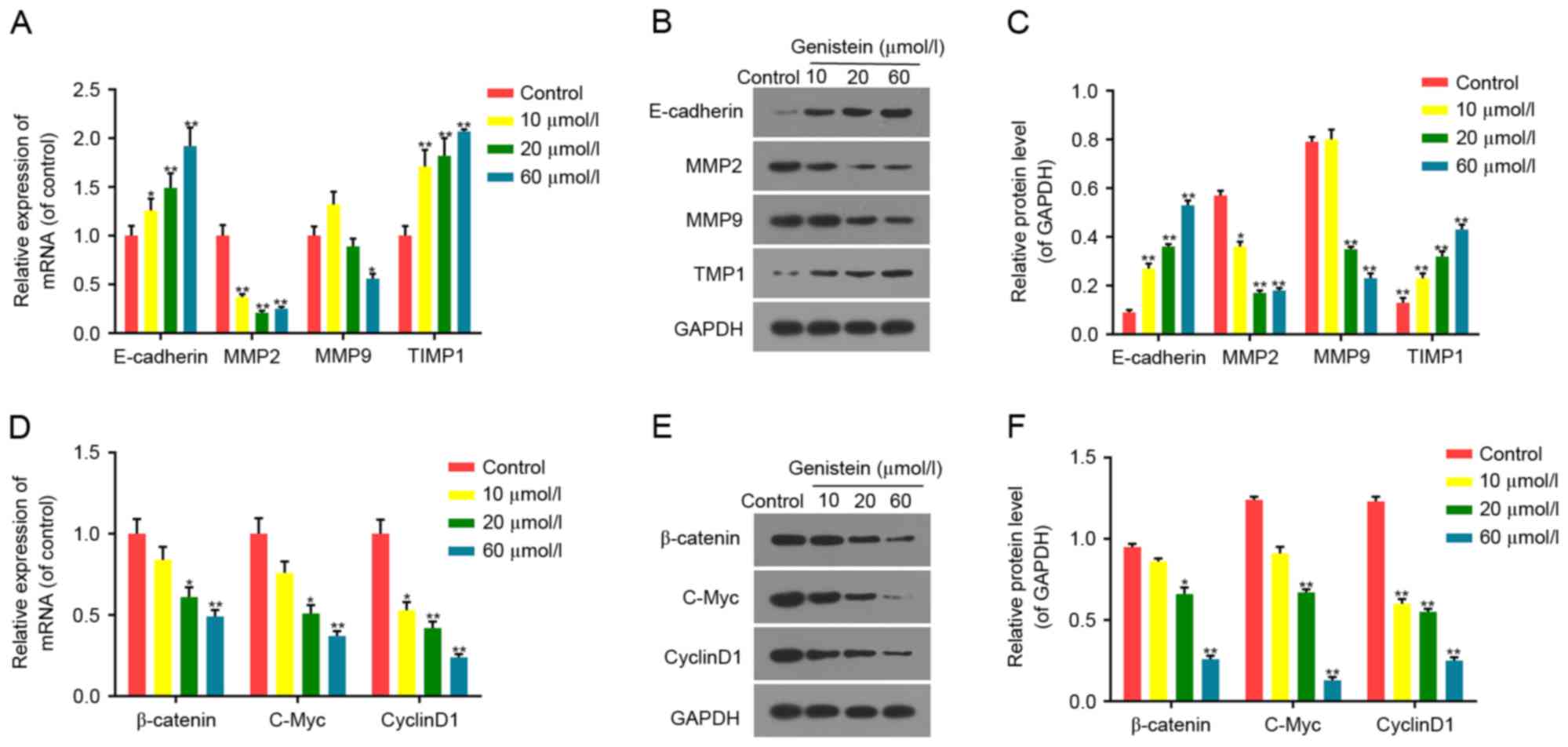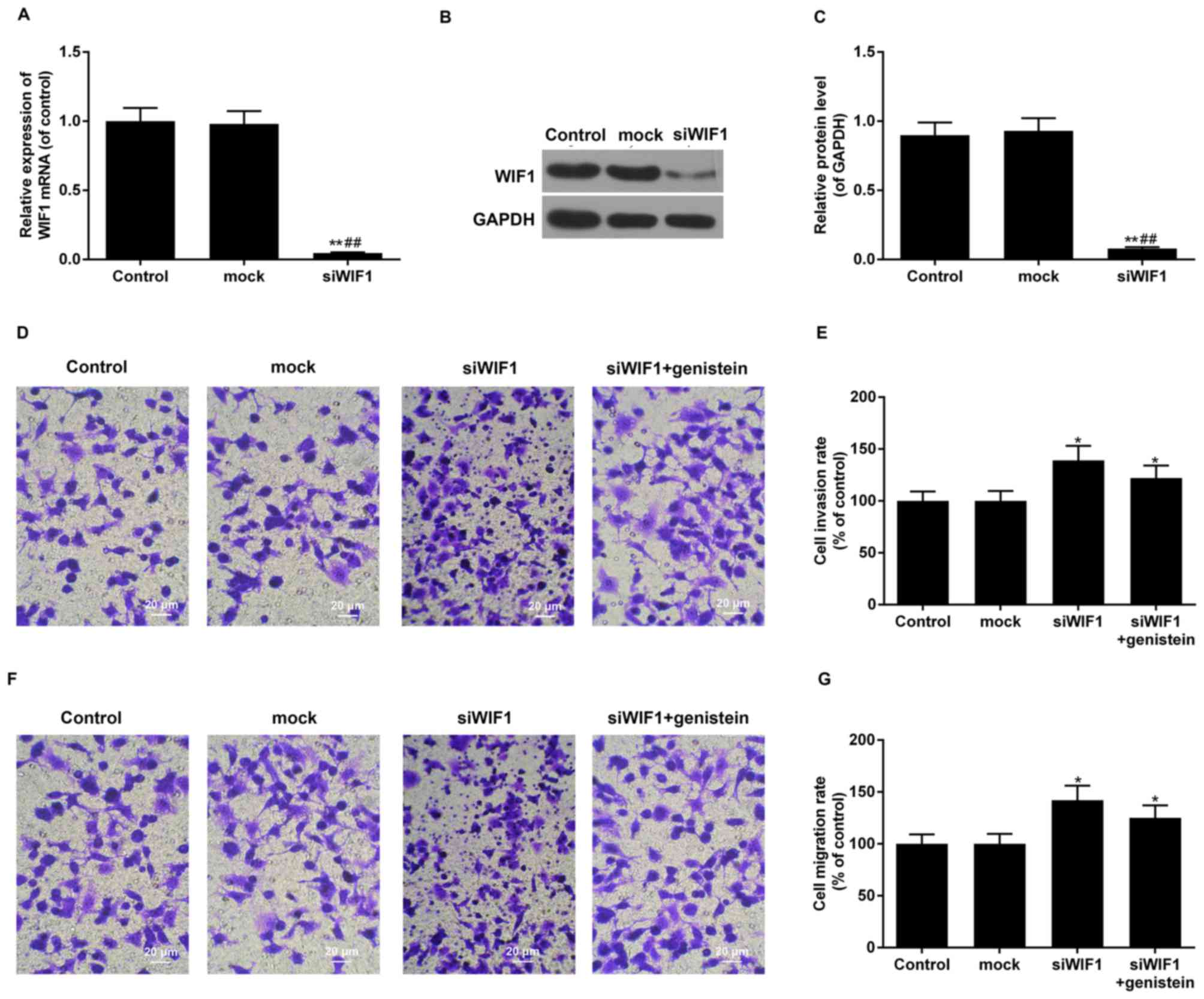|
1
|
Xu S, Yao H, Pei L, Hu M, Li D, Qiu Y,
Wang G, Wu L, Yao H, Zhu Z and Xu J: Design, synthesis, and
biological evaluation of NAD(P)H: Quinone oxidoreductase
(NQO1)-targeted oridonin prodrugs possessing indolequinone moiety
for hypoxia-selective activation. Eur J Med Chem. 132:310–321.
2017. View Article : Google Scholar : PubMed/NCBI
|
|
2
|
Choi Y, Sateia HF, Peairs KS and Stewart
RW: Screening for colorectal cancer. Semin Oncol. 44:34–44. 2017.
View Article : Google Scholar : PubMed/NCBI
|
|
3
|
Hu J, Li J, Yue X, Wang JC, Wang JF, Liu
JZ and Kong DL: Targeting BCRP/ABCG2 by RNA interference enhances
the chemotherapy sensitivity of human colon cancer side population
cells. J Huazhong Univ Sci Technolog Med Sci. 37:231–236. 2017.
View Article : Google Scholar : PubMed/NCBI
|
|
4
|
Ahmed I, Roy BC, Subramaniam D, Ganie SA,
Kwatra D, Dixon D, Anant S, Zargar MA and Umar S: An ornamental
plant targets epigenetic signaling to block cancer stem cell-driven
colon carcinogenesis. Carcinogenesis. 37:385–396. 2016. View Article : Google Scholar : PubMed/NCBI
|
|
5
|
Patai ÁV, Valcz G, Hollósi P, Kalmár A,
Péterfia B, Patai Á, Wichmann B, Spisák S, Barták BK, Leiszter K,
et al: Comprehensive DNA methylation analysis reveals a common
ten-gene methylation signature in colorectal adenomas and
carcinomas. PLoS One. 10:e01338362015. View Article : Google Scholar : PubMed/NCBI
|
|
6
|
Sánchez-Vega F, Gotea V, Chen YC and
Elnitski L: CpG island methylator phenotype in adenocarcinomas from
the digestive tract: Methods, conclusions and controversies. World
J Gastrointest Oncol. 9:105–120. 2017. View Article : Google Scholar : PubMed/NCBI
|
|
7
|
Chan SL, Cui Y, van Hasselt A, Li H,
Srivastava G, Jin H, Ng KM, Wang Y, Lee KY, Tsao GS, et al: The
tumor suppressor Wnt inhibitory factor 1 is frequently methylated
in nasopharyngeal and esophageal carcinomas. Lab Invest.
87:644–650. 2007. View Article : Google Scholar : PubMed/NCBI
|
|
8
|
Bilir B, Sharma NV, Lee J, Hammarstrom B,
Svindland A, Kucuk O and Moreno CS: Effects of genistein
supplementation on genome-wide DNA methylation and gene expression
in patients with localized prostate cancer. Int J Oncol.
51:223–234. 2017. View Article : Google Scholar : PubMed/NCBI
|
|
9
|
Sundaram MK, Ansari MZ, Mutery AA, Ashraf
M, Nasab R, Rai S, Rais N and Hussain A: Genistein induces
alterations of epigenetic modulatory signatures in human cervical
cancer cells. Anticancer Agents Med Chem. Sep 18–2017.(Epub ahead
of print). PubMed/NCBI
|
|
10
|
Chen G, Zhou T, Li Y, Yu Z and Sun L: p53
target miR-29c-3p suppresses colon cancer cell invasion and
migration through inhibition of PHLDB2. Biochem Biophys Res Commun.
487:90–95. 2017. View Article : Google Scholar : PubMed/NCBI
|
|
11
|
Zhang L, Wu H, Xiao X, Li K, Zhang Y,
Zhang L and Wen T: Analysis on regulatory network linked to Hpa
gene in invasion and metastasis of colon cancer. Saudi J Biol Sci.
24:504–507. 2017. View Article : Google Scholar : PubMed/NCBI
|
|
12
|
Luo X, Xiong X, Shao Q, Xiang T, Li L, Yin
X, Li X, Tao Q and Ren G: The tumor suppressor interferon
regulatory factor 8 inhibits β-catenin signaling in breast cancers,
but is frequently silenced by promoter methylation. Oncotarget.
8:48875–48888. 2017.PubMed/NCBI
|
|
13
|
Livak KJ and Schmittgen TD: Analysis of
relative gene expression data using real-time quantitative PCR and
the 2(-Delta Delta C(T)) method. Methods. 25:402–408. 2001.
View Article : Google Scholar : PubMed/NCBI
|
|
14
|
Wang LS, Kuo CT, Huang TH, Yearsley M,
Oshima K, Stoner GD, Yu J, Lechner JF and Huang YW: Black
raspberries protectively regulate methylation of Wnt pathway genes
in precancerous colon tissue. Cancer Prev Res (Phila). 6:1317–1327.
2013. View Article : Google Scholar : PubMed/NCBI
|
|
15
|
Afgar A, Fard-Esfahani P, Mehrtash A,
Azadmanesh K, Khodarahmi F, Ghadir M and Teimoori-Toolabi L:
MiR-339 and especially miR-766 reactivate the expression of tumor
suppressor genes in colorectal cancer cell lines through DNA
methyltransferase 3B gene inhibition. Cancer Biol Ther.
17:1126–1138. 2016. View Article : Google Scholar : PubMed/NCBI
|
|
16
|
Yang SH, Li SL, Dong ZM and Kan QC:
Epigenetic inactivation of Wnt inhibitory factor-1 in human
esophageal squamous cell carcinoma. Oncol Res. 20:123–130. 2012.
View Article : Google Scholar : PubMed/NCBI
|
|
17
|
Stewart DJ: Wnt signaling pathway in
non-small cell lung cancer. J Natl Cancer Inst. 106:djt3562014.
View Article : Google Scholar : PubMed/NCBI
|
|
18
|
Stanciu AE, Zamfir-Chiru-Anton A, Stanciu
MM, Popescu CR and Gheorghe DC: Imbalance between matrix
metalloproteinases and tissue inhibitors of metalloproteinases
promotes invasion and metastasis of head and neck squamous cell
carcinoma. Clin Lab. 63:1613–1620. 2017. View Article : Google Scholar : PubMed/NCBI
|
|
19
|
Das A, Monteiro M, Barai A, Kumar S and
Sen S: MMP proteolytic activity regulates cancer invasiveness by
modulating integrins. Sci Rep. 7:142192017. View Article : Google Scholar : PubMed/NCBI
|
|
20
|
Shi Y, An D, Liu Y, Feng Q, Fang X, Pan G
and Wang Q: Propoxur enhances MMP-2 expression and the
corresponding invasion of human breast cancer cells via the
ERK/Nrf2 signaling pathway. Oncotarget. 8:87107–87123.
2017.PubMed/NCBI
|
|
21
|
Cheng Z, Limbu MH, Wang Z, Liu J, Liu L,
Zhang X, Chen P and Liu B: MMP-2 and 9 in chronic kidney disease.
Int J Mol Sci. 18:2762017. View Article : Google Scholar :
|
|
22
|
Shen EY, Wang WG, Li Y, Zhang SH and Zhen
YS: Inhibitory effect of endoplasmic reticulum-retained anti-type
IV collagenase intrabody on invasion and proliferation of cancer
cell. Ai Zheng. 23:1005–1010. 2004.(In Chinese). PubMed/NCBI
|
|
23
|
Lu L, Li X, Xu P, Zheng Y and Wang X:
Tenuigenin down-regulates the release of nitric oxide, matrix
metalloproteinase-9 and cytokines from
lipopolysaccharide-stimulated microglia. Neurosci Lett. 650:82–88.
2017. View Article : Google Scholar : PubMed/NCBI
|
|
24
|
Thiele ND, Wirth JW, Steins D, Koop AC,
Ittrich H, Lohse AW and Kluwe J: TIMP-1 is upregulated, but not
essential in hepatic fibrogenesis and carcinogenesis in mice. Sci
Rep. 7:7142017. View Article : Google Scholar : PubMed/NCBI
|
|
25
|
Gulati N, Rathore AS, Juneja S and Rastogi
P: Expression of E-cadherin and B-cell lymphoma 2 in oral cancer: A
ratio-based planning for targeted therapy. Indian J Dent Res.
28:3–9. 2017. View Article : Google Scholar : PubMed/NCBI
|
|
26
|
Huang M, Chen C, Geng J, Han D, Wang T,
Xie T, Wang L, Wang Y, Wang CH, Lei Z and Chu X: Targeting KDM1A
attenuates Wnt/β-catenin signaling pathway to eliminate
sorafenib-resistant stem-like cells in hepatocellular carcinoma.
Cancer Lett. 398:12–21. 2017. View Article : Google Scholar : PubMed/NCBI
|
|
27
|
Vega OA, Lucero CMJ, Araya HF, Jerez S,
Tapia JC, Antonelli M, Salazar-Onfray F, Las Heras F, Thaler R,
Riester SM, et al: Wnt/β-catenin signaling activates expression of
the bone-related transcription factor RUNX2 in select human
osteosarcoma cell types. J Cell Biochem. 118:3662–3674. 2017.
View Article : Google Scholar : PubMed/NCBI
|
|
28
|
Strindlund K, Troiano G, Sgaramella N,
Coates PJ, Gu X, Boldrup L, Califano L, Fahraeus R, Muzio LL,
Ardito F, et al: Patients with high c-MYC expressing squamous cell
carcinomas of the tongue show better survival than those with
low-and medium-expressing tumours. J Oral Pathol Med. 46:967–971.
2017.PubMed/NCBI
|
|
29
|
Hong F, Ze Y, Zhou Y, Hong J, Yu X, Sheng
L and Wang L: Nanoparticulate TiO2 -mediated inhibition of the Wnt
signaling pathway causes dendritic development disorder in cultured
rat hippocampal neurons. J Biomed Mater Res A. 105:2139–2149. 2017.
View Article : Google Scholar : PubMed/NCBI
|















